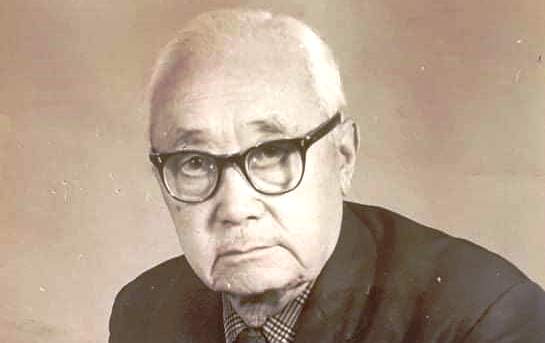Born in the beginning of the 20th Century in a Ladakhi Christian family, my father, S. S. Gergan left at a very young age for Srinagar, Kashmir for his education. At the time, this journey would take 14 days on foot or pony. In Kashmir, he studied at the Tyndale Biscoe School, where he had the privilege of studying under the pioneering educationist, Canon Cecil Tyndale Biscoe. My father was a keen sportsman and represented Sri Pratap College in football, field hockey, tug-of-war and water sports. An avid polo enthusiast, he played the sport in Ladakh till well into his 50s. A lover of good music, he loved playing his Amati violin.
After his studies, my father took an administrative position in the Education Department in Ladakh. He would recount stories of school visits, including ones in Skardu region of Baltistan. In June 1929, his older brother, Chimed Gergan, an officer in the Forest Department was murdered on Pensi-la by smugglers of Indian Costus or Kuth (Sassurea lappa), which was an expensive minor forest produce exported to China through Central Asia. After this incident, the Maharaja’s government offered a position to my father in the Forest Department. I don’t know the exact year when he joined the Forest Service but it was sometime in the early 1930s. During this service, he was sent to the Imperial Forest College, Dehradun, which has since been renamed as Forest Research Institute. He was the first Ladakhi alumnus of this institution.
During his years in the Forest Service, he was posted in Ladakh for a few years and the rest of his tenure was in Kashmir where he was instrumental in establishing the Forest Training School in Chattarnar, Bandipore. He also served as Game Warden Kashmir (wildlife was known as game then) till his retirement. In Ladakh, he made a Plantation Working Plan for river valleys stretching from Changthang to Zoji-la, which was quite task in those days of pony transport. He probably spent around 33 to 34 in years in the Forest Service and retired in 1964. In addition to forestry, he also had extensive knowledge of earth sciences and biodiversity.
After his retirement in 1964, he assumed various responsibilities including serving as the Principal of the Moravian Institute, Dehradun. However, he dedicated this period of his life to research on Ladakh. His primary task was to complete editing a book on Ladakh’s history, Ladags rGyalrabs Chimed Ster, which was written by his father, Yoseb Tsetan Gergan (famed for translating the Bible into Tibetan and as a research scholar). In the absence of printing facilities for Tibetan alphabets in Kashmir, S. S. Gergan painstakingly calligraphed the whole book of several hundred pages by writing five to six pages a day for its lithography. This authoritative book on Ladakh history was published in 1976 and remains an essential reference on the subject. Besides this, he collaborated with Prof. F. M. Hassnain to write the ‘Critical introduction and annotations’ to Dr. A. H. Franke’s republished book, History of Ladakh. S. S. Gergan himself wrote two books; The Losar of Ladakh, Spiti, Lahoul, Khunnu, and Western Tibet (1978) and Big Game of Jammu and Kashmir (1962). He received invitations from several universities to deliver lectures, conduct research and participate in field surveys.
It was during one of his research tours to Kargil to explore local renditions of the legendary King rGyalam Kesar’s exploits that he suffered a fatal cardiac arrest. An epitome of health and vigour throughout his lifetime, S. S. Gergan passed away with his boots on! He was survived by his stalwart homemaker-wife Florence and family of six children.
By Elijah Spalbar Gergan
Elijah Spalbar Gergan served as Principal of Moravian Mission School for 25 years. Earlier in 1982, he established the Suru Valley Public School in Kargil.

